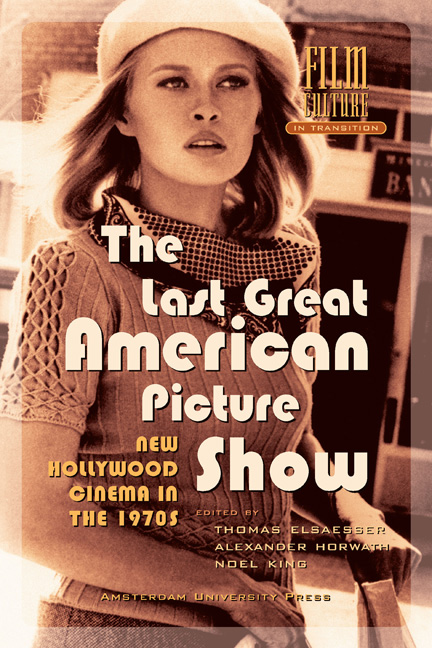The Exploitation Generation. or: How Marginal Movies Came in from the Cold
Published online by Cambridge University Press: 25 January 2021
Summary
Astonishing things seemed possible in the 1970s, the decade when the 1960s came home to roost. Buffeted by the same pressures that rocked American society overall, the movie industry underwent an unprecedented upheaval that left it permanently changed. In the space of a few crucial years, the citadel of Hollywood – then crowded with industry veterans whose tastes and technical skills were formed decades earlier – was stormed by writers, editors, directors, producers, cinematographers and actors who learned their craft not by rising through the ranks of major studio production, but on Hollywood's fringes: in television, film school and exploitation movies. They rejected the conventional ideals embraced and disseminated by Hollywood's venerable dream factory and produced a body of complex, ambitious movies characterized by ambiguous endings, cynical morals and puzzling, contradictory characters whose fortunes foundered on the world's casual cruelty. They ushered in a sea change in American mainstream filmmaking as the powerful, mandatory Production Code, in place since 1934, breathed its last gasp in 1968 and promised a wideopen future in which no topic was taboo.
No longer were filmmakers constrained by guidelines requiring that films uplift (or at least not lower) audiences’ moral standards, refrain from creating sympathy for “crime, wrong-doing, evil or sin,” depict “correct standards of life” and never, ever ridicule law (”divine, natural or human”) or valorise those who do. By the end of the decade, rude, crude, deliberately scruffy midnight movies, from Alejandro Jodorowsky's hallucinatory EL TOPO (1971) to Jim Sharman's giddily transgressive ROCKY HORROR PICTURE SHOW (1975), had found dedicated audiences with little advertising and run for months and even years. Low-budget independent productions had out-grossed lavishly bankrolled studio films, and major studios had released films about eccentric loners, hustlers, drug users, iconoclasts, thieves, drop-outs, prostitutes, losers, sexual rebels and even killers. The sympathy of moviegoers was regularly thrown to the side of criminals, wrong-doers and sinners whose standards of life were often in flagrant violation of mainstream notions of correctness. The very notion of law being above ridicule had some to seem preposterous; the 1960s mantra, question authority, is firmly ingrained in 1970s films.
- Type
- Chapter
- Information
- The Last Great American Picture ShowNew Hollywood Cinema in the 1970s, pp. 107 - 130Publisher: Amsterdam University PressPrint publication year: 2004



